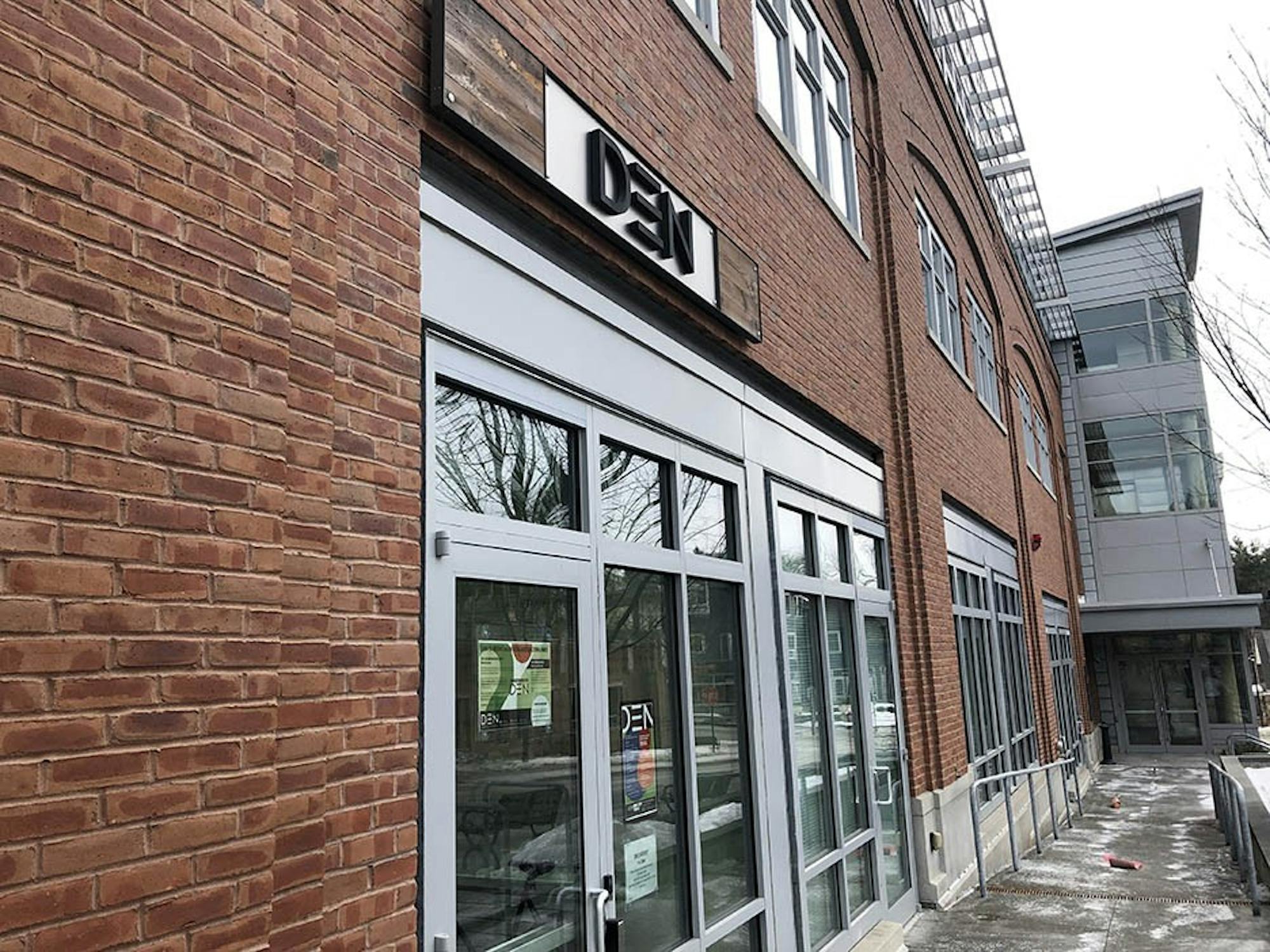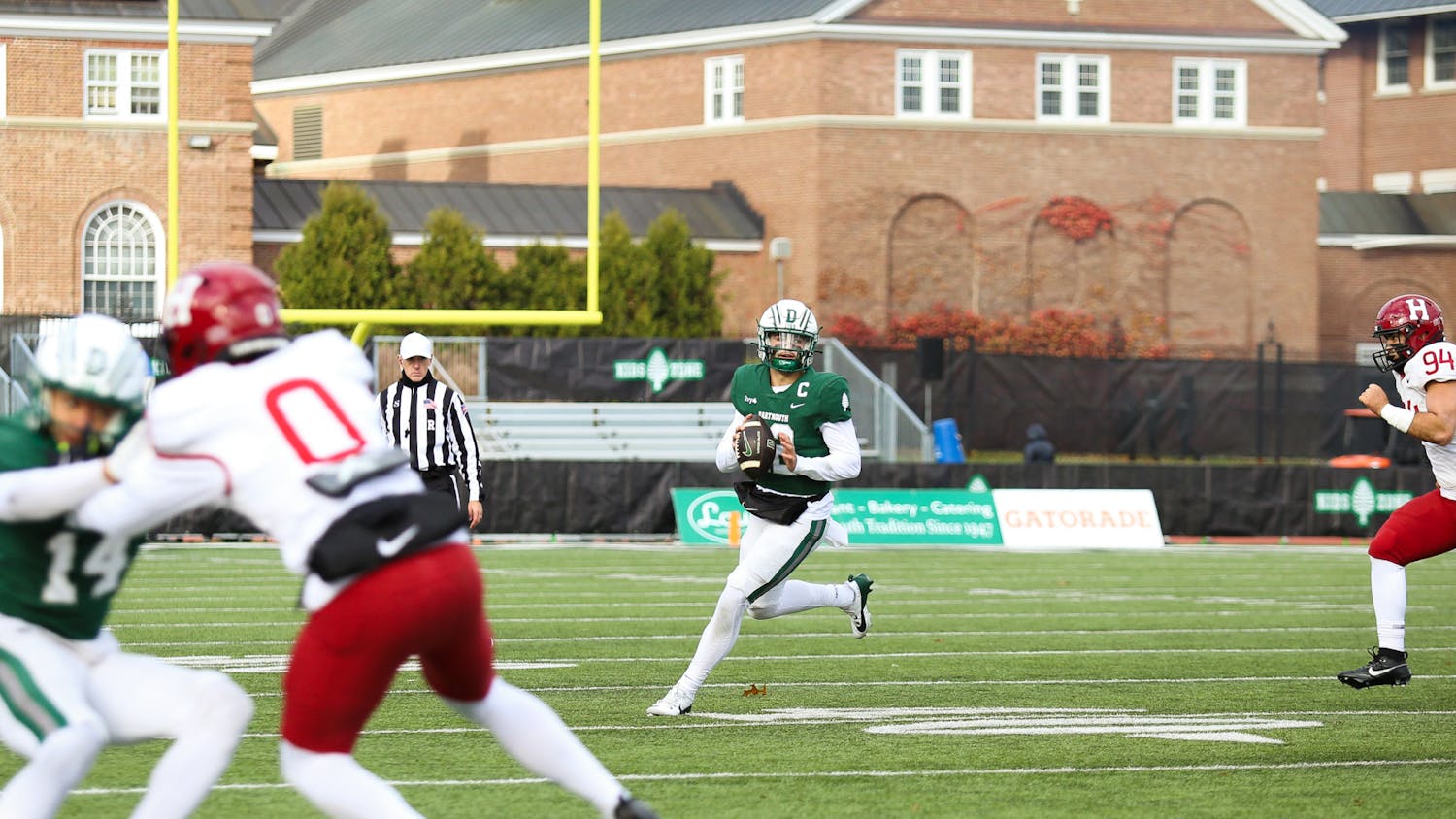This article was featured in the 2018 Winter Carnival Issue.
In the eyes of Jayanth Batchu ’18, innovation means finding a “better, multifaceted” solution to problems in the world. Through the Dartmouth Entrepreneurial Network and his own biotech business endeavors, Batchu has pursued this goal throughout his time at Dartmouth. Working under the mentorship of faculty from the College and the Geisel School of Medicine, Batchu created Novather, Inc., a biotech startup that focuses on reducing, if not eliminating, the side effects of CAR T-Cell therapy used to treat cancer.
Batchu said his interest in biotechnology began in his sophomore year of high school, when he worked on research associated with heart disease. After participating in the North Carolina School of Science and Mathematics’ Summer Ventures program, he was motivated to continue working on biomedical research.
The idea for his current endeavor came to him at the end of his sophomore year of college. To flesh out and formalize his plans, Batchu met with Jake Reder, the head of new ventures at Geisel, who gave him feedback and introduced him to professors who could provide him advice in the future. Batchu spent time improving his idea at the theoretical stage and is now looking for funding to carry out proof-of-concept experiments. He added that he recently began meeting with professional investors and other biotech companies to discuss partnerships and/or support.
Partnerships are the basis of Novather’s business model, Batchu said.
“What I do is I help the other technology be better, so if some other company has a CAR T-Cell therapy but it has some side effects, if they partner with me, I can reduce their side effects and give them something better to work with,” he said.
Batchu chose to study at Dartmouth in part because of what it offered him and his project. Knowing he wanted to start a company, he explored the Dartmouth Center of Cancer Nanotechnology Excellence, which integrates nanotechnology with cancer research, spoke with biomedical engineering professors and looked into the DEN and the Dartmouth alumni network before deciding that Dartmouth would provide him with many of the resources he was looking for as an entrepreneur.
He said his decision paid off.
“I’ve only been able to reach this stage by significantly leveraging the DEN and the bigger Dartmouth alumni network,” Batchu said. “If I hadn’t made use of that, I wouldn’t be able to be in this spot. I’ve gotten tons of great advice.”
Beyond advice, Batchu has received monetary support and experiential opportunities through Dartmouth. He has received two DEN Founders Grants, which offer up to $5,000 to “facilitate the start and development of Dartmouth-founded ventures,” gone on two DEN West Coast Experience trips (once as a participant and once as an organizer) and attended “almost every single speaker event” that DEN has offered, he said.
Batchu said that in addition to his entrepreneurship, he is currently pursuing both economics and biomedical engineering majors. The balance, he says, is a delicate one which is often difficult to maintain. Pursuing two of the College’s more difficult majors in addition to his own startup has led to many sleepless nights, he added.
“In the startup world, if you’re not prepared for the worst case scenario, you will get wiped out,” Batchu said.
For this reason, he said he keeps an open mind in relation to things like class scheduling. No matter the situation or the schedule, he can make it work, scheduling his company work around his classes and other commitments.
Sherri Oberg ’82 Tu’86, who has served as a mentor for Batchu throughout his entrepreneurial journey, echoed this sentiment.
“One thing that effective entrepreneurs figure out how to do is to balance a lot of different things, and Jay seems to be doing a good job of that,” she said. “Kind of like how varsity athletes put a huge amount of time into their varsity practices and games and still have to juggle their academic workload … my guess is that Jay’s doing just fine juggling everything.”
Though he said the balance between work and school can be exhausting, Batchu, who plans to continue his current project after he graduates in the spring, encouraged other Dartmouth students to give it a try if they’re interested in entrepreneurship.
“My two biggest pieces of advice would be ‘don’t give up’ and ‘always be willing to learn,’” he said. “If you don’t give up, you will eventually reach the end goal, and if you’re willing to learn, then whenever you encounter a roadblock, you can work your way around it or break through it.”
Aidan Folbe ’19 is another entrepreneur on campus who serves as a DEN associate alongside Batchu. In 2015, he and his business partner redesigned their app, GiftAMeal, after starting the project a year earlier as a peer-to-peer restaurant recommendation service. The app is now focused on restaurant marketing and branding, transforming restaurants into social enterprises and providing meals to those in need.
“Every user who dines at a partner restaurant of ours and takes a photo there and checks in, we provide a meal to someone in need locally through a local food bank,” Folbe said.
The app partners with restaurants and food banks in St. Louis, Chicago and Detroit. The food banks then work with local food pantries to distribute the meals, Folbe said. If users share their photo on social media, an additional meal is donated.
Folbe said that partnering with GiftAMeal serves as a way for restaurants to help those in need while also improving their own image. Every time a user chooses to share their experience with a GiftAMeal partner restaurant on Facebook or Instagram, the restaurant is associated with a good cause, he added.
A gifted meal comes in the form of a cash donation from GiftAMeal to a local food bank. These donations equal the calculated cost of a meal (based on statistics from Feeding America, a nonprofit that works to end hunger in the United States). The donations are funded by the monthly fees of restaurants who have paid for GiftAMeal’s marketing services.
Folbe and co-founder Andrew Glantz began developing GiftAMeal while interning at a venture capital firm after Folbe’s junior year of high school. Folbe named this experience as an inspiring factor in starting his business.
“Having startups present to these managing partners all the time, we just decided, ‘You know, it’d be really cool if we were working on something this summer as well,’” he said.
Folbe said he believes the update GiftAMeal app improved on some of the shortcomings of popular restaurant review sites, allowing users to read restaurant recommendations from their friends rather than from strangers. Users were incentivized to use the app by receiving 50 cents for each time a friend went to a restaurant the user recommended.
The new model, Folbe said, provides instant gratification for users. Rather than having to wait for a friend to visit the referred restaurant, users provide a meal immediately upon dining at a GiftAMeal partner restaurant.
After this change, GiftAMeal started receiving more media attention and signing on more restaurants, Folbe said. The app now has 40 paying restaurants and over 100 partner restaurants across St. Louis, Chicago and Detroit. Paying restaurants receive marketing benefits that non-paying partners do not.
Like Batchu, Folbe cites DEN and the broader Dartmouth alumni network as two of the College’s greatest assets from an entrepreneurial perspective. Even as an underclassman, he said, he was introduced to venture capitalists and other alumni who helped him practice his business pitches and gave him advice.
Folbe, too, has received monetary support through winning The Pitch, an annual event co-hosted by DEN and Dartmouth’s Digital Arts, Leadership and Innovation lab during his freshman year, receiving $3,000 to put towards his startup.
Also during his freshman year, Folbe worked with Dartmouth student interns through the DEN Campus Ventures program, which matches students with real-world startups run by other Dartmouth students or students at the Tuck School of Business.
Although Folbe acknowledged that the balance of coursework and entrepreneurship can be difficult, he said that being on a college campus allows him to better understand his app’s audience, which he described as mostly millennials.
“Our app really does try to appeal to millennials,” Folbe said. “You’re taking pictures of food, you’re giving to people in need … I feel like the millennials are very socially conscious by nature and enjoy social media. It’s important for me to know what type of apps are appealing to millennials now.”
According to Glantz, Folbe does a great job of effectively balancing his classes and his business responsibilities.
“I’ve found that Aidan really takes the most from his classes and applies it to GiftAMeal in a really efficient way, so even when he’s in class, he’s also applying those concepts to GiftAMeal,” he said, calling Folbe a “creative guru” who is always coming up with new ways to solve problems.
This constant communication, Folbe said, is what keeps him on track with his team members, none of whom go to Dartmouth.
“They have no idea if I’ve got a midterm coming up,” he said.
Eileen (Eily) Brady is a '21 from Chicago who studies government and romance languages. Eily loves travel, politics, iced tea and her dogs, Mac and Charlie. She is thrilled to be reporting the news for The Dartmouth.




